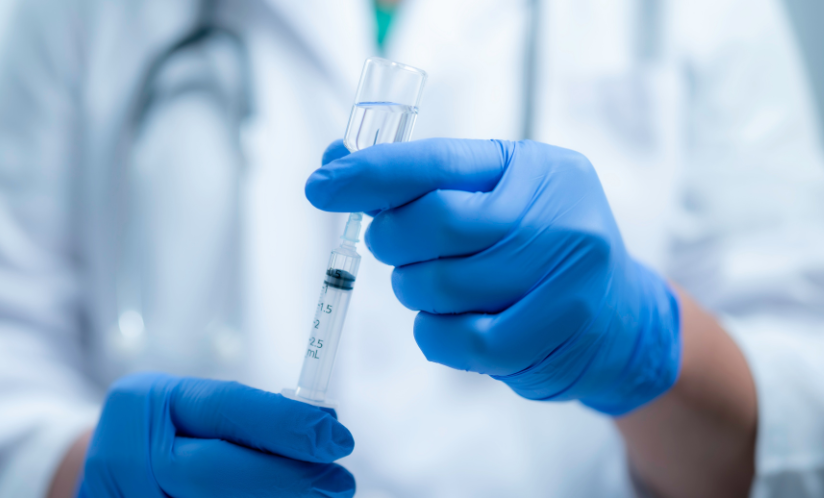
A Toxic Mixture of Bad Science, Celebrity Misinformation, and Exploitation of Parental Fear
In his first post-election interview, Donald Trump spoke to Kristen Welker of NBC News about a range of topics, including issues his nominee for secretary of the Department of Health and Human Services, Robert F. Kennedy Jr., will address.
Welker asked Trump: “Let me ask you about RFK Jr. He has obviously talked about his skepticism of vaccines. He’s expressed opposition to childhood vaccines. Do you want to see childhood vaccines eliminated?”
Trump then turned to the topic of the long-debunked link between autism and vaccines—suggesting that despite the decades of scientific evidence, “somebody has to find out.”
Research on this topic, however, is already clear. Top experts, including Rollins School of Public Health Dean M. Daniele Fallin, PhD, have been studying autism and its causes for many years.
In this interview, Fallin discusses what we know about the causes of autism and what the science says about vaccine safety.
What is the source of the misinformation about the debunked theory that vaccines can cause autism?
There has been extensive research into this topic—summarized by the American Academy of Pediatrics, the National Academy of Medicine, and the Centers for Disease Control and Prevention, among many other groups—that has found no scientific evidence of a link between the MMR vaccine (which protects against measles, mumps, and rubella) and autism.
The issue can be traced back to an English doctor named Andrew Wakefield, who published a paper in a well-regarded medical journal purporting to show a link between receiving the MMR vaccine and developing autism.
The paper was highly flawed, including the fact that Wakefield had been paid by the lawyer of parents whose children had autism and were looking to establish a link to the MMR vaccine.
The paper was found to have so many ethical and methodological issues that it was eventually retracted by its own co-authors and the journal, and Wakefield lost his medical license.
Because this was an important question to answer rigorously, the field did carry out multiple additional studies to test for a relationship between vaccines and autism. A huge amount of resources and time was spent to address this with rigor and led to overwhelming evidence that childhood vaccines do not cause autism.
Almost immediately after the Wakefield publication, studies began reporting no link between autism and the MMR vaccine, such as:
- 1999: study of 500 children, no link found
- 2001: study of 10,000 children, no link found
- 2002: study of 537,000 children, no link found
- 2002: study of 535,000 children, no link found
In the now more than two decades since the Wakefield study, millions of children have been studied, providing overwhelming evidence that there is no link between autism and vaccines.
Why is autism increasing? And what do we know about what causes autism?
It is true that U.S. prevalence estimates of autism continue to increase, with 1 in 36 eight-year-olds identified with autism in 2020. That is up from 1 in 150 in 2000. Similar increasing trends have been seen in most other countries that measure autism in children.
Many studies have sought to understand the reasons for this increase. There are clear indications that changes in diagnostic practices and increased awareness of autism among families and providers have contributed to the increased numbers of children getting an autism diagnosis. Yet, many researchers have concluded that the frequency of autism itself is indeed increasing beyond these administrative explanations.
Boys are four times more likely than girls to be diagnosed with autism. Other demographic factors associated with higher rates of autism include maternal and paternal age, family history, obstetric conditions, and short intervals between the birth of one child and conception of the next child.
Environmental factors appear to play a role as well. Studies have implicated exposure to air pollution during pregnancy; exposure to some metals, pesticides, or other chemicals; and potentially exposure to pharmaceuticals such as valproic acid, which is used as an anti-seizure medication. But researchers are continuing to study these environmental factors.
How does vaccine misinformation play on parental fears, and what can public health practitioners do about this?
Parents are naturally concerned about their children’s well-being and don’t want to harm their child in any way. The spread of vaccine misinformation causes hesitation among parents and mistrust in science. This has led to reduced vaccination rates and increased outbreaks. It also causes parents undue emotional distress.
How do high-profile figures and celebrities contribute to the spread of the vaccine-autism myth?
Since the 1990s, some celebrities have spoken out about their belief that vaccines cause autism and have used the now debunked Wakefield paper as scientific evidence. The debunked autism-vaccine link has been amplified by many groups over the years. Still, the disproven link resonates with parents who do not want to risk harming their child and believe they are hearing from a trusted source, such as a well-known celebrity.
Unfortunately, they are hearing about debunked science, and this has led to decreased vaccination rates in many parts of the world, including in the U.S. The U.S. and other nations have now experienced multiple measles outbreaks, including severe sickness and even death from a preventable illness.